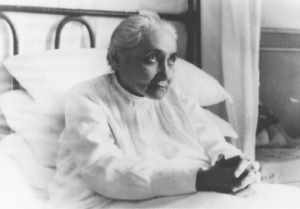The Two Agonies of Jesus in the Garden and on the Cross
THE TWO AGONIES OF JESUS IN THE GARDEN AND ON THE CROSS FROM THE BOOK OF HEAVEN

Our Lord Jesus Christ to the Servant of God, Luisa Piccarreta,
The Little Daughter of the Divine Will:
VOLUME 9
July 4, 1910
The agony in the Garden was, in a special way, for the help of the dying; the agony on the Cross was for help at the last moment, at the very last breath.
Continuing in my usual state full of privations and of bitterness, I was thinking about the agony of Our Lord, and the Lord told me: “My daughter(Luisa), in a special way I wanted to suffer the agony in the Garden, in order to help all of the dying to die well. Look well at how my agony is combined with the agony of Christians: tediums, sadnesses, anguishes, the sweat of blood – I felt the death of all and of each one, as if I were really dying for each one in particular; so I felt the tediums, the sadnesses, the anguishes of each one within Me, and with my own I offered help, comfort and hope to all, so that, as I felt their deaths in Me, they might all receive the grace to die all in Me, as though in one single breath – with my breath, and to be beatified immediately by my Divinity.
If the agony in the Garden was in a special way for the dying, the agony on the Cross was for help at the last moment, at the very last breath. They are both agonies, but one is different from the other: the agony in the Garden, full of sadnesses, of fears, of anxieties, of frights; the agony on the Cross, full of peace, of imperturbable calm. And if I cried out ‘I thirst!’, it was the insatiable thirst that all might breathe their last in my last breath; and in seeing that many would go out of my last breath, out of grief I cried out ‘Sitio!’ [‘I thirst!’], and this ‘sitio’ still continues to cry out to all and to each one like a bell at the door of each heart: ‘I thirst for you, oh soul! O please, never go out of Me, but enter into Me and breathe your last in Me!’
So, six are the hours of my Passion which I gave to men in order to die well: the three in the Garden were for help in the agony; the three on the Cross for help at the very last sigh before death. After this, who could not look at death with a smile? More so for one who loves Me, for one who tries to sacrifice himself on my very cross. Do you (Luisa)see how beautiful death is, and how things are changed? In life I was despised; the very miracles did not produce the effects of my death; even up to the Cross there were insults… But as soon as I breathed my last, death had the power to change things: all beat their breasts, confessing Me the true Son of God; my very disciples plucked up courage, and even those who were hidden became brave and asked for my body, giving Me honorable burial. Heaven and earth, in full voice, confessed Me the Son of God. Death is something great, something sublime; and this happens also for my own children: in life they are despised, oppressed; those very virtues which, like light, should make those who are around them start, remain half-veiled; their heroisms in suffering, their abnegations, their zeal for souls, cast lights and doubts in those who surround them; and I myself permit these veils, so as to preserve with more safety the virtue of my dear children. But as soon as they die, I withdraw these veils since they are no longer necessary, and the doubts become certainties, the light becomes clear, and this light makes others appreciate their heroism – they pay esteem to everything, even to the smallest things. Therefore, what cannot be done in life, is made up for by death. This, as for what happens down here. That which happens up there, then, is truly surprising and enviable to all mortals.”
Permanent link to this article: https://luisapiccarreta.com/reflection-from-book-of-heaven/the-two-agonies-of-jesus-in-the-garden-and-on-the-cross/